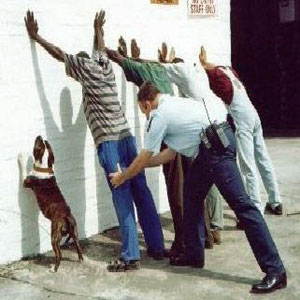The California Senate Thursday passed a bill that would give prosecutors the option of charging people caught in the possession of small amounts of hard drugs with misdemeanors instead of felonies. Senate Bill 649, the Local Control in Sentencing Act, now goes before the Assembly.
Introduced by Sen. Mark Leno (D-San Francisco), the bill is designed to ameliorate California’s ongoing over-incarceration crisis, reduce the burden of county corrections costs (counties are taking up the burden of imprisoning large numbers of people under the state’s prison realignment plan), and increase the number of problem drug users entering drug treatment.
“One of the best ways to promote lower crime rates is to provide low-level offenders with the rehabilitation they need to successfully reenter their communities,” said Leno. “However, our current laws do just the opposite. We give nonviolent drug offenders long terms, offer them no treatment while they’re incarcerated and then release them back into the community with few job prospects or opportunities to receive an education. SB 649 gives local governments the flexibility to choose reduced penalties so that they can reinvest in proven alternatives that benefit minor offenders and reserve limited jail space for serious criminals.”
Thirteen other states already allow misdemeanor filings for hard drug possession, Leno said.
“In these 13 other states we can document that there is higher participation in drug treatment,” Leno said. “As a result there is lower drug use. As a result, there is less violent and property crime in these 13 other states.”
Leno sponsored similar legislation last year, but that measure required that hard drug possession be treated as misdemeanor. That led law enforcement to oppose it on the grounds that it removed leverage necessary to get drug users into treatment. This year’s makes hard drug possession a “wobbler,” meaning prosecutors could charge it as either a misdemeanor or a felony.
“They need the hammer, the threat of a felony, to make sure certain people go into treatment,” Leno explained.
Despite the partial retreat, this year’s legislation was again supported by the ACLU of California and the Drug Policy Alliance.
“We commend the Senate for approving this bill at a time when lasting, sustainable and common sense solutions to California’s ongoing incarceration crisis are so needed,” said Margaret Dooley-Sammuli, senior criminal justice and drug policy advocate for the ACLU of California. “This bill will help counties break the state’s addiction to incarceration by enabling them to invest their limited resources in the community-based treatment, rehabilitation and education programs proven to reduce recidivism, prevent crime and increase public safety.”
But not everybody supported the legislation, which passed on a 23-14 vote. Three Democrats joined 11 Republicans in voting against the bill. Some of those opponents had old-school solutions instead.
Sen. Ted Gaines (R-Rocklin) noted that people can already go into drug treatment instead of jail under Proposition 36. He said the solution was to build more jails and prisons.
Article From StoptheDrugWar.org - Creative Commons Licensing - Donate









